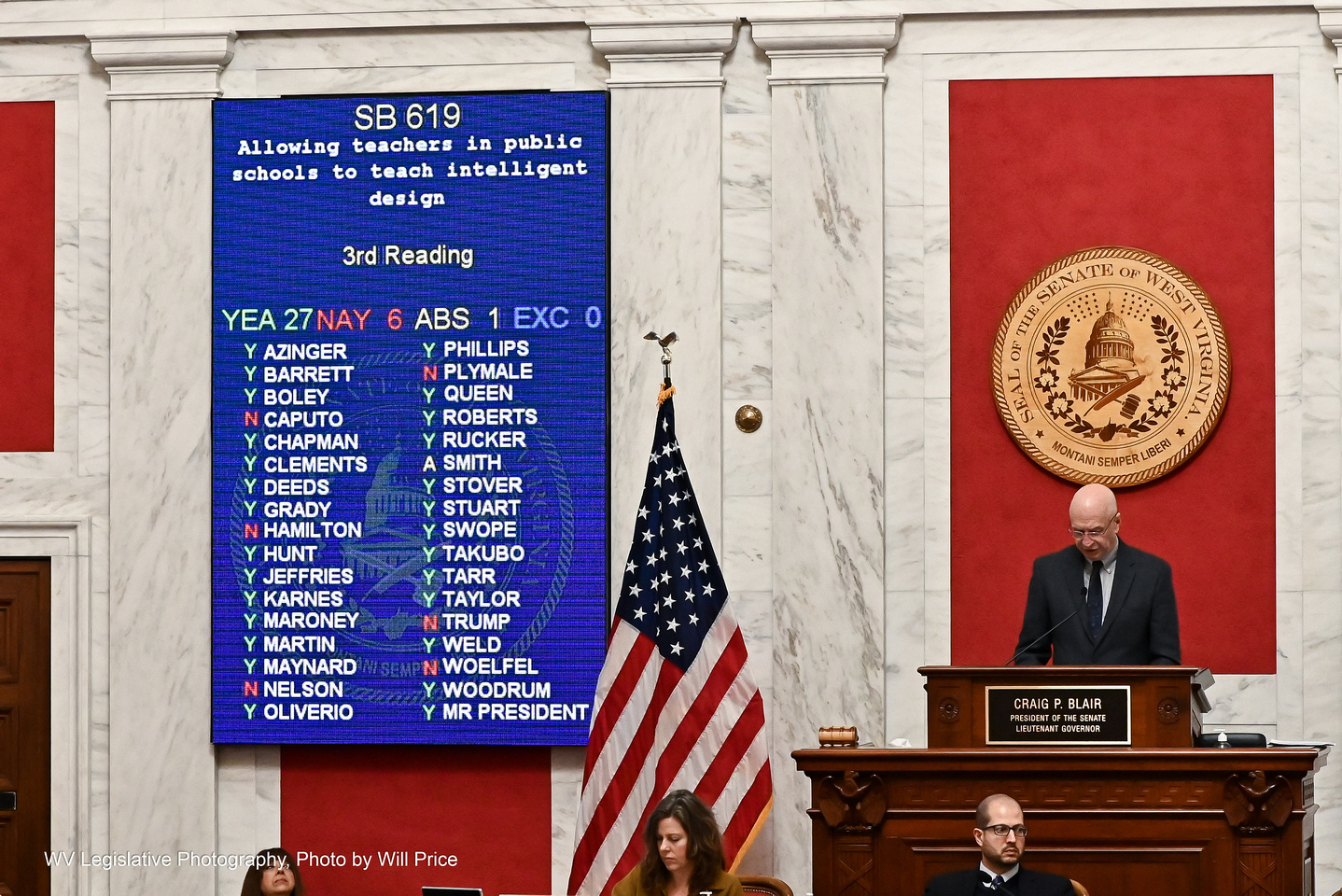The Senate gaveled in for its first Saturday floor session of 2023 as Crossover Day looms this coming Wednesday, March 1.
Crossover Day is an important deadline in the legislative process. It marks the final day for bills to pass out of their chamber of origin to complete legislative action in the other chamber.
The Senate began by deferring until later in the day two of the biggest bills on the day’s schedule: Senate Bill 268, which would address the state’s embattled Public Employee Insurance Agency and Senate Bill 423, which would increase salaries for certain state employees.
Nearing Completion
The Senate passed three bills Saturday that originated in the House of Delegates. However, as all three were amended in Senate committees, they must now return to the House before completing legislative action.
House Bill 2993 would create a new hospital designation called “Rural Emergency Hospital.”
During discussion of the bill in the Senate Health and Human Resources Committee Feb. 21, it was stated that the new designation was intended to allow access to critical outpatient hospital services in communities that might not be able to support or sustain a traditional critical access hospital.
House Bill 3113 would require West Virginia high school students to complete a course of study in personal finance to graduate.
Sen. Charles Clements, R-Wetzel, said during discussion of the bill in the Senate Education Committee Feb. 21 that he felt the requirement was long overdue.
“In my years when I had a business I was shocked at the number of people that had no earthly idea how to handle any kind of finances in their life,” he said. “I think this is long overdue that we put this in our school system to teach people how to do those daily financial things like balance a checkbook, how to try to manage credit that didn’t get out of hand. I think it’s a very big step for our school systems.”
House Bill 3317 would remove two continuing education requirements relating to controlled substances and veterans’ mental health for certain medical professionals.
Senate Health and Human Resources Committee Chair Sen. Mike Maroney, R-Marshall, said that the intent of the bill was not to make license renewal easier.
“Every now and then in code, depending on what’s going on in the world, we’ll put in requirements for licensure,” he said. “After four or five years of doing the same (continuing medical education) over and over and over again, it’s still required unless we remove it. That’s kind of what this bill does for those who have done it multiple times.”
To The House
The Senate also passed nine bills, including Senate Bill 469, which would create a special revenue fund in the State Treasury to pay for CPR instruction in the state’s high schools.
Senate Bill 544 also passed, which would increase the caps on maximum solar power output for commercial customers from 500 kilowatts to 1000 kilowatts.
Senate Government Organization Chair Jack David Woodrum, R-Summers, explained the cap increase would help larger projects advance the public interest.
“One such project is for Calhoun County Schools,” he said. “Two solar arrays will be installed, one to Calhoun County Middle High School with an output of 596.6 kilowatts, and the other at Pleasant Hill Elementary School with an output of 172 kilowatts.”
Senate Bill 558 would prohibit law-enforcement agencies from posting booking photographs of certain criminal defendants on social media, with exceptions such as in the active search of a fugitive.
The bill’s lead sponsor, Sen. Ryan Weld, R-Brooke, said the bill is modeled on legislation passed in several other states, and is needed to protect individuals alleged to have committed a minor offense.
“We all know that social media can be a difficult place sometimes, and there have been numerous studies that have shown the effects on mental health that social media has had, not just on our youth, but also on adults as well,“ Weld said.
Weld cited the case of a woman in West Virginia, whose young son was arrested on a misdemeanor charge.
“And after being released from custody, he found his booking photo on the social media website of the police department that had initially arrested him and charged him,” Weld said. “That young man, after seeing some of the vicious comments that were posted on his photograph, and the shares that it had had, and the attacks that were being made on him and his family as a result of his arrest, tragically took his own life.”
“And so I think that with the exceptions that we’ve placed in the bill, I think we can hopefully avoid another family being struck by a tragedy like that of the one of the mother that I had the pleasure to be introduced to,” he concluded.
Senate Bill 619 would allow, but not require, educators to teach intelligent design as a theory. The American Civil Liberties Union of West Virginia stated during discussion of the bill in committee that the allowance would enable violations of the establishment clause, which prohibits governments at any level in the U.S. from establishing or sponsoring religion.
The bill’s passage was the most contentious of the morning, with six Senators voting against.
Senate Bill 676 would require the Bureau for Medical Services submit a report every two years on Medicaid fees and managed care provider reimbursements compared to PEIA, Medicare, and surrounding states.
All bills now go to the House of Delegates for its consideration.
The Senate adjourned until 1:30 p.m. In the interim, both the Senate Judiciary and Finance committees will meet to discuss legislation, including House Bill 2526, titled “Relating to reducing the personal income tax.”
